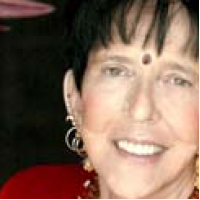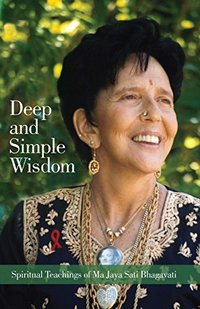
The 11 Karmic Spaces: Choosing Freedom From The Patterns That Bind You
by Ma Jaya Sati BhagavatiPublish: Nov 01, 2011Religion & SpiritualityBook Overview
OVERVIEW AND DESCRIPTION OF THE BOOKMany of us are on an inner journey of some kind. And yet, though we may have come to a place of greater awareness, mental and behavioral patterns often persist that seem to keep us from progressing. Negative emotions, addictions, procrastination, attachments – all keep the soul from fulfilling its deepest purpose. How do we transcend the traps that ensnare us again and again?
The Eleven Karmic Spaces describes these traps as forms of karma. We all know the word, yet few understand karma’s nuances, traps, and gifts–or how it truly works. Fewer still know how to deal with karma.
Ma Jaya Sati Bhagavati, an American-born interfaith spiritual teacher and mystic, shares her deep understanding in a simple, accessible format designed for anyone who seeks greater awareness to guide his or her life. She teaches us that karma is a spiritual law to which we are all bound, yet there is grace. There is freedom of choice. We have the ability, through developing awareness and intuition, to acknowledge and overcome karma. Ma shows us how.
Everyone has the ability to be happy, and everyone has the ability to live in the moment, and yet we find ourselves trapped again and again in old patterns that go far deeper than simple habits. These habits affect us mind, body, and spirit, and hold us back from knowing our true selves. In effect, they hold us back from being in touch with our own perfect souls, which are in harmony with the universe, or with the mind of God, or with whatever we choose to call the deepest reality. This is karma: the patterns that trap us in a limited life.
The Eleven Karmic Spaces can serve as a modern path to liberation, or as Ma says, “an instruction manual to help you find your soul.”
Ma Jaya teaches us that happiness can be found. In fact, it has never been lost because it exists within all of us as pure potential. But karma hinders our happiness, creating a crust or barrier around our deepest selves. At the heart of happiness is freedom, the freedom found in understanding and dismantling the crust of karma. In addition to explaining what karma is and how it works, The Eleven Karmic Spaces teaches the reader how to recognize the karmic patterns, both good and bad, in our lives and how to overcome them. The Eleven Karmic Spaces differs from other books on karma by offering practical solutions, thus serving as a guidebook that can help contemporary people with their lives.
Most teachings on karma are closely linked to the doctrine of reincarnation, another idea that is often misunderstood in the West. While Ma Jaya’s core teachings include reincarnation, she makes it clear that exploring past lives is not where our focus should lie. It is our lives in the here and now that are important, for it is what we do with each present moment that counts.
To offer us a path to follow, Ma Jaya has identified patterns of limitation and self-sabotage that we impose on ourselves. Ma calls these patterns “Karmic Spaces” and has identified eleven of the most common ones, each representing a habitual pattern or the constant repetition of mistakes that bar the way to happiness. A karmic space is like a net in the mind that has captured your thoughts and controls you. That’s why it feels as though it keeps you stuck in a kind of space or a place. Ma often refers to the Karmic Spaces as “cubbyholes” because, as we flee to them for safety, they appear to be warm, soft and inviting–the perfect place for the mind to hide out. She offers detailed descriptions of each karmic space, ways to recognize when one is at work in your life, and tools to transcend it. The book also includes stories by those who have used these teachings, to reveal the relevance to ordinary situations.
Moving away from a karmic space, or moving the mind and emotions away from the thoughts that have entrapped them, is more difficult than we realize. Although the self-help movement brims with good advice, Ma J



